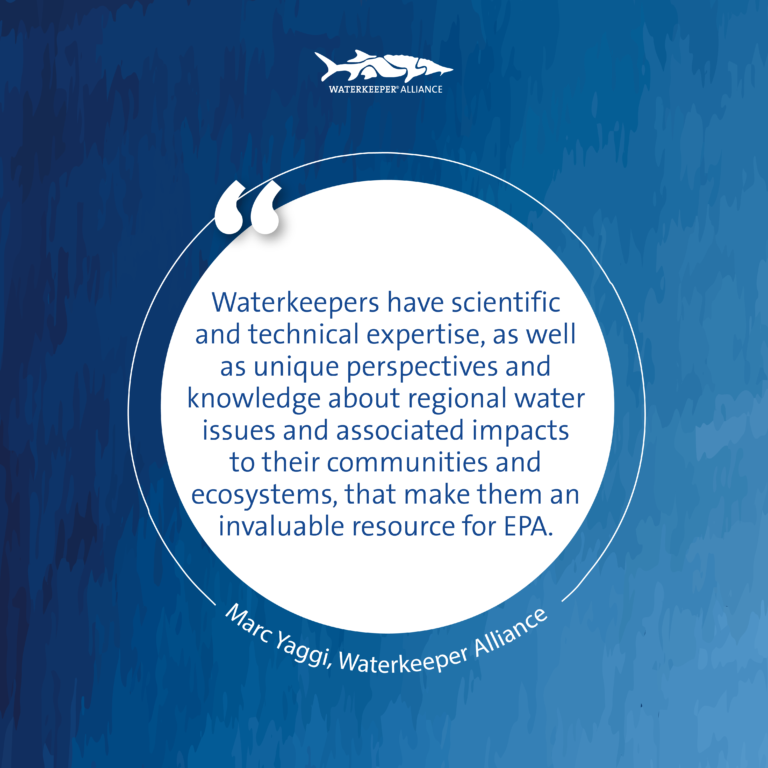Waterkeeper Alliance Works to Align Local Waterkeepers with Regional EPA Administrators
By: Waterkeeper Alliance

As the U.S. celebrates the 49th anniversary of the landmark Clean Water Act (CWA) legislation, Waterkeeper Alliance—a global movement that connects and supports nearly 350 Waterkeeper organizations and Affiliates in 47 countries on six continents—is proactively coordinating with local Waterkeepers across the country to connect with incoming U.S. Environmental Protection Agency (EPA) Regional Administrators.
The goal is to advance a shared mission to protect clean water, public health, and the environment by establishing and strengthening relationships as well as identifying opportunities to collaborate on concerns related to CWA implementation within EPA’s ten regions.
“Waterkeeper groups collectively protect more than 1.4 million square miles of U.S. waterways and are connected to a national network that operates on the ground and at the grassroots level to address water quality challenges in their regions,” said Waterkeeper Alliance Executive Director Marc Yaggi. “Their scientific and technical expertise, as well as unique perspectives about regional water issues and associated impacts to their communities and ecosystems, makes them an invaluable resource for EPA.”
In addition to identifying watershed specific concerns, questions, and proposed solutions, all of the regional letters will highlight the following priority issues: “waters of the United States” definition; concentrated animal feeding operations and agricultural pollution; nonpoint source and stormwater pollution; and emerging contaminants and plastic pollution. The letters will include examples of issue-related impacts to one or more waterways in each Waterkeeper’s jurisdiction.
As EPA Regional Administrators are confirmed over the coming months, Waterkeeper groups will seek meetings to discuss these issues and help inform a path forward. “As we get ready to celebrate the 50th anniversary of the CWA next year, we are calling for the government to lead in fully implementing the protections afforded under this historic legislation,” continued Yaggi. “Waterkeeper groups around the country are committed to working with EPA to ensure every community has access to drinkable, fishable, and swimmable water.”